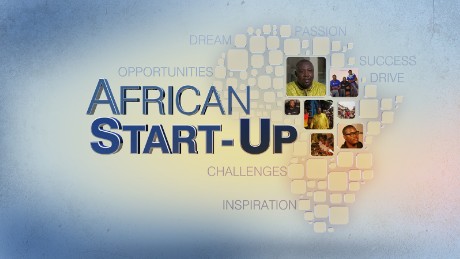Africa’s startup ecosystem has captivated global attention for its ingenuity and rapid growth, offering innovative solutions to some of the continent’s most pressing challenges. Yet, the macroeconomic environment and structural challenges have created headwinds, significantly affecting venture capital (VC) funding. The recent decline in VC inflows across the continent has sparked debates about whether African tech has lost its allure, if fragmented ecosystems are slowing progress, or if unmet investor expectations are to blame. Examining the cases of Nigeria and Kenya offers insights into these issues and highlights how government policies often shape the trajectory of startups.
The dramatic drop in VC funding in Africa, with a decline of approximately 40% in 2023 compared to its peak in 2021, is partly a reflection of global economic conditions. Rising interest rates and heightened risk aversion among investors have shifted capital away from emerging markets. However, there are factors intrinsic to Africa’s tech ecosystems that amplify these challenges. Investors are questioning whether the continent is delivering the level of innovation and execution required to justify continued support.
Nigeria, as Africa’s largest economy and a leading startup hub, exemplifies both the promise and the pitfalls of the ecosystem. The country’s fintech sector, particularly, has attracted substantial funding in recent years, driven by its vast unbanked population and the demand for digital financial services. However, Nigeria’s macroeconomic instability, marked by chronic currency volatility and inflation, has been a significant deterrent for investors. The naira’s devaluation in 2023 heightened exchange rate risks, eroding investor returns and undermining startup valuations. Entrepreneurs, even with compelling business models, struggle to secure long-term funding in such an unpredictable environment.
Regulatory unpredictability compounds these challenges. While initiatives like the Central Bank of Nigeria’s efforts to promote financial inclusion have bolstered fintech, erratic policy shifts have caused disruption. The sudden ban on cryptocurrency transactions in 2021 exemplified how regulatory decisions could upend entire segments of the startup ecosystem overnight. Entrepreneurs in Nigeria often find themselves navigating a labyrinth of compliance requirements, adding costs and uncertainty to their operations.
Execution gaps among startups in Nigeria have further dampened investor confidence. Entrepreneurs frequently face infrastructure limitations and a shortage of skilled talent, making it difficult to scale businesses effectively. While the Nigerian startup scene brims with potential, scaling remains a significant hurdle. This combination of macroeconomic instability, regulatory unpredictability, and execution challenges has created an environment where even the most promising startups struggle to fulfill their potential.
In contrast, Kenya, often referred to as the “Silicon Savannah,” offers a relatively more stable and organized ecosystem. The country has built a reputation as a pioneer in innovation, thanks to successes like mobile money platform M-Pesa, which has become a global model for financial inclusion. Kenya’s relatively stable economic policies and a more predictable regulatory environment have made it an attractive destination for investors.
However, Kenya’s startup ecosystem is not without its challenges. Like Nigeria, its startup activity is heavily concentrated in the fintech sector, leaving other industries such as agriculture and healthcare underdeveloped. While fintech has driven much of the funding inflow, the overreliance on this sector creates vulnerabilities, as other transformative opportunities remain untapped. Furthermore, many Kenyan startups face difficulties in scaling beyond the local market. Despite the presence of supportive public-private partnerships and innovation hubs, a lack of harmonized regulations across East Africa often hampers cross-border expansion.
Investor skepticism regarding the ability of African startups to deliver sustainable returns is not unique to Kenya or Nigeria but reflects broader concerns. In both countries, startups often struggle to generate revenues that justify the high valuations they attract during early funding rounds. Limited purchasing power and infrastructural challenges constrain growth, while the high cost of capital eats into profit margins. For investors seeking outsized returns, these realities have made the African market less enticing, especially when compared to ecosystems with higher purchasing power and more predictable growth trajectories.
Underlying these challenges is the slow maturity of Africa’s startup ecosystems. While the number of innovation hubs, accelerators, and government-led initiatives has grown exponentially, these efforts often lack cohesion. Fragmented ecosystems, coupled with insufficient coordination among stakeholders, make it difficult to scale startups to a level that attracts consistent global investment. Governments have played a pivotal role in shaping the ecosystem, but their policies often fall short in practice.
For instance, Nigeria’s Startup Act, passed in 2022, was hailed as a groundbreaking policy aimed at reducing barriers for entrepreneurs. Yet, its implementation has been slow and uneven, leaving many startups unable to fully benefit from its provisions. Similarly, in Kenya, government initiatives such as the Konza Technopolis project have drawn significant attention but have been criticized for their slow execution and limited integration with existing startup ecosystems.
For Africa’s startups to overcome these hurdles, ecosystem cohesion is critical. Governments, private sector players, and development organizations must collaborate to address systemic gaps in mentorship, infrastructure, and access to capital. Promoting sectoral diversity is equally important. While fintech has been a success story, other sectors such as agritech, health tech, and cleantech hold immense potential and remain underfunded.
Equally vital is the need to enhance execution capacity among entrepreneurs. African startups must prioritize building strong teams and robust governance structures to meet investor expectations. Partnerships with global accelerators and networks can help entrepreneurs acquire the skills and expertise needed to scale effectively. On the policy front, governments must focus on creating stable, business-friendly environments. Predictable regulations and transparent governance are essential for fostering investor confidence and allowing startups to thrive.
The venture capital model itself in dire need of Africanization – that is, the crafting of financial instruments appropriate to the actual African circumstance and a design fund theses that follow this logic. This can only happen if investors, foreign and domestic, break from their conservative approach to capital deployment in Africa. Donors and philanthropic organizations must lead the way and incentivize these funds to take a leap of faith.










